Running has been a great and exciting sport and hobby that everyone enjoyed sports and games, especially running in their childhood, in any case, nothing that I was extremely erect about until later months. I would consider myself a good runner who runs 5 runs per week, between 7 miles each time. However, my early unplanned running only two weeks in advance meant I had enough dedicated half-marathon training outside of my daily routine.
I am usually being asked the same question from newbies: Do I need to fuel during a half marathon?, and I make sure to be clear that if your distance can be covered in 2 hours and 30 minutes it does not require fueling up for a normal person, otherwise running for weight loss or fun, you will need to fuel up during the race with water or sports drinks.
I will share my experience of running a half marathon in this article so that you can decide whether or not fueling is necessary during the next race.
A half-marathon is around 13.1 miles, which is a distance that can be covered in 2 hours and 30 minutes. In this case, it’s best to avoid eating before the race and instead focus on hydrating yourself with water or sports drinks while running.
If you’ve ever wondered if it is necessary to fuel during the race, the answer is that it depends on what kind of person you are and your goals. If you’re running for weight loss reasons or fun, then it’s likely that you’ll want to fuel during the race and take in fluids like water or sports drinks.
Long Distance Half Marathon Gear Up Fueling
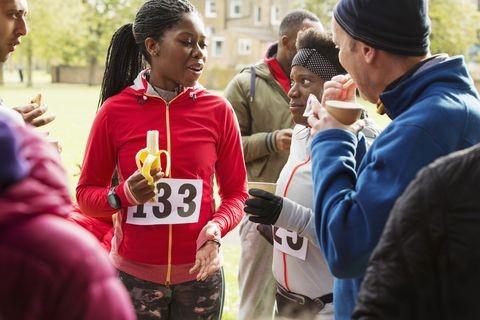
However, since you are going at a high speed for this long period of time, it is important to fuel up throughout the race. You should consider fueling up every three miles or so with sports drinks, gels, and water.
Running half-marathons or even ultramarathons can take a toll on your body. You need to fuel yourself with the right amount of calories and electrolytes.
According to the American Dietetic Association, runners should try to eat some form of food or drink 2-3 hours before starting a half marathon. Like any endurance exercise, athletes should make sure that they are fueling with energy gels to give them enough nutrients and electrolytes.
Running a half marathon can be an exciting experience. It is an event that many people try to do at least once in their lifetime. However, the training period for this event is extensive and requires a lot of time and energy.
The training period for this event includes running two to three miles per day on average, and some days even more than that. That might mean that you need to eat up to 5,000 calories per day during the training period if you’re not eating while running. Some would say that you should fuel up before, during or after the event so it does not interfere with your performance.
To stay in shape, you need to fuel your body correctly. Fueling before and during a race is essential. Lack of energy can be frustrating when you’re training for a marathon or any other race.
This article talks about fueling during a half marathon and how it affects performance, including tips on what fuels to use and when.
Long-Term Burn During Half Marathon
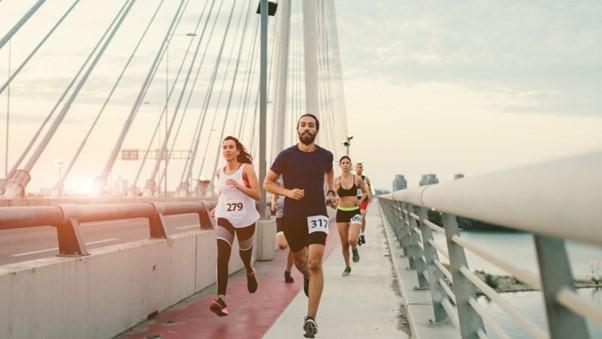
The average person burns 2,500 calories in a half marathon. If you are running regularly and want to sustain your energy and performance levels during that distance, you should be fueling yourself with around 500 calories per hour.
The half marathon is long-distance, and it would be recommended to fuel up your body during the race. While it is unnecessary to fuel up every time you run, it would be wise to do so if you are running for more than an hour.
Hybrid Fueling At The Time Of Half Marathon
This new era has given rise to a new term, “hybrid fueling,” which means fueling between your long runs, short runs, or sprints. The most common example of this is at half-marathons, where you might run 13 miles, and then stop for two hours before you go back out for another 3 miles. The key here is to make sure that you drink enough water when you are stopping, and doing that will help your muscles recover quickly.
Most people have that question in their mind or they are unsure if fueling during a half marathon is necessary or not. Some individuals know that this is necessary, while others have the opposite opinion.
Fueling during a race can be helpful for the athlete and their performance. There are many different ways we can fuel their bodies, but it’s still best to speak with a sports nutritionist to find out what will work best for them.
It can also help you know what kind of fuel you’re taking, so there are no surprises in your stomach during mid-race.
If you are going to be participating in a half marathon, it is essential to fuel up on the right amount of calories and carbs. The idea of getting fuel during a race is not as new as some people think. Many marathon runners have been fueling themselves during races since the early 1900s.
Limited Storage Tank During Running
An interesting question to ask before setting out for a big race. It is essential to stay hydrated during exercise, especially in hot weather.
The most common cause of cramping and dehydration during exercise is not enough water or electrolytes being consumed. This can happen because the body requires more fluid than usual when performing strenuous activities.
Running on an empty stomach may also lead to cramps and dehydration because the body must work harder to digest food in a low-carb diet.
During long-distance events, it is recommended that you drink one liter of water every hour and avoid sugar-containing drinks like sports drinks or Gatorade because they’re full of sugar that can dehydrate you even further if you’re already dehydrated.
Everyone loves the idea of running a half marathon with no fuel and slowing down when they are out of energy. It sounds like a very appealing goal, but it is not advisable.
After completing a half marathon, many runners want to know what would happen if they did not fuel during the race. While you may want to think about it, you should remember that your body needs energy at all times because it has to consume oxygen and break down food for fuel.
Half Marathon Meal Plan A Complete Guide
As a runner, eating healthy is essential. It helps you stay fit and gives you the energy to do your best during your workouts. One way to help yourself, in the long run, is to have a meal plan.
A good meal plan can have three meals and one snack each day, except breakfast when you only trained in the morning. For example, if you are preparing for a half marathon, breakfast might be skipped on that day because it would slow down your time in the race.
This guide is for anyone who has never run a half marathon before or who wants to improve their performance by doing it again, or for someone running their first half marathon and wants to make sure they don’t get sick before the race starts.
A complete guide to the Half Marathon meal plan:
- How to prepare and pack a food bag for your race (to ensure you have enough food)
- How to fuel up before a long run/race
- What snacks to eat before and after a race
- The 4-hour marathon diet plan and what type of nutritional supplements you should take
The Half Marathon is a long-distance running race. The race usually consists of a 13.1 mile (21.09 kilometer) course with an elevation gain of 2,470 feet (731 m). You need to remember while competing in this race is the best meal to eat during the Half Marathon. Some of the perfect foods for Half Marathon are cereal, bread, pasta, rice, and granola bars.
What to eat during a half marathon?
Some athletes choose not to eat anything before starting their half marathon, while others will have sports drinks or energy bars as their main meals. A popular option is to eat a dense carbohydrate-rich meal such as pasta or rice before the race.
Reboost Carbohydrate Nutrition
During a half marathon, you may need to refuel your body with carbs. Reboost Carbohydrate Nutrition has made this easier for runners by providing them with the best pre-and post-race nutrition.
Reboost uses scientific principles and a data-driven approach to help runners achieve their goals. They perform rigorous research so that they can provide information that is accurate and reliable.
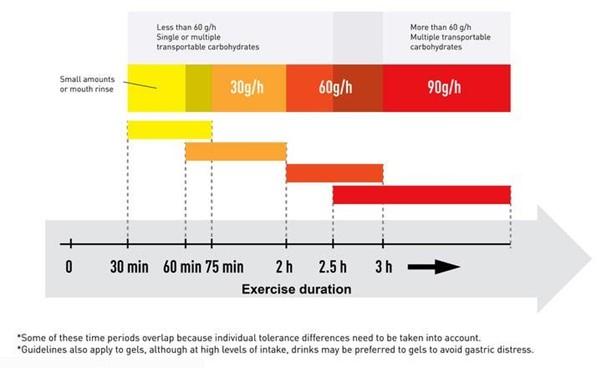
A half marathon is a race that lasts for around 42 kilometers and can be held on any track. This type of race is a full-body endurance test, so endurance athletes rely on carbohydrates to fuel the body during the race.
A few weeks before your event, you should start planning your diet by monitoring your carbohydrate intake. It is best to assume that you will need to refuel with at least 2-3 grams of carbs per kilogram of lean body mass each hour during exercise.
When you are training for a marathon, it can be tricky to know the best fuels to take.
If you’re doing a half-marathon, your training will last about 10 hours, and you will need more fuel than usual.
Researchers have found that the optimal carb intake during a half-marathon is 100 grams per hour. It’s highly recommended that this amount be spread throughout the day for optimal performance and health benefits.
Pre-Race Diet Of Half Marathon
Nutrition is key to the success of any race. It is essential to fuel your body with enough energy so that you can achieve your goals. Many people often forget how vital nutrition and hydration are before a race? They don’t realize that they need to consume enough calories, electrolytes, and carbohydrates.
Half marathoners should consider their need for fuel during the race. However, runners who have extreme endurance could go without food and water for an extended period of time. For ordinary people, it is recommended to take energy gels before the race.
Exercise Duration and Carbohydrate Intake Recommendations for half marathon:
The half-marathon is not a race, but the distance of 13.1 miles is still considered a significant physical challenge. To complete this event, runners need to maintain an adequate calorie intake.
In this article provides you with the best guidelines for carbohydrate intake during the half-marathon so that runners can make appropriate adjustments in their diet planning before and after the event. We also discussed how to determine how many calories you should consume during an exercise session, and lastly,as a coach I tried to provide some suggestions for pre-race nutrition strategies to improve performance.
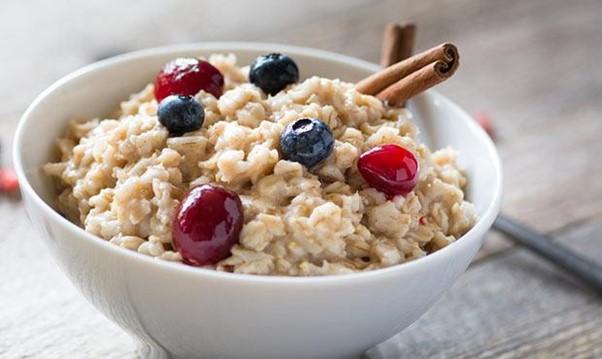
Some experts have suggested that runners consume 1-2 g/kg/hour, while others recommend 4-6 g/kg/hour.
Runners should keep in mind that the duration and intensity of the race will change their carbohydrate needs.
Nutritions Required During Race
The physiology and nutrition of athletes is a complex subject. There is a variety of nutrients required for each body type. It is important to consider the right nutrition for each athlete’s goals.
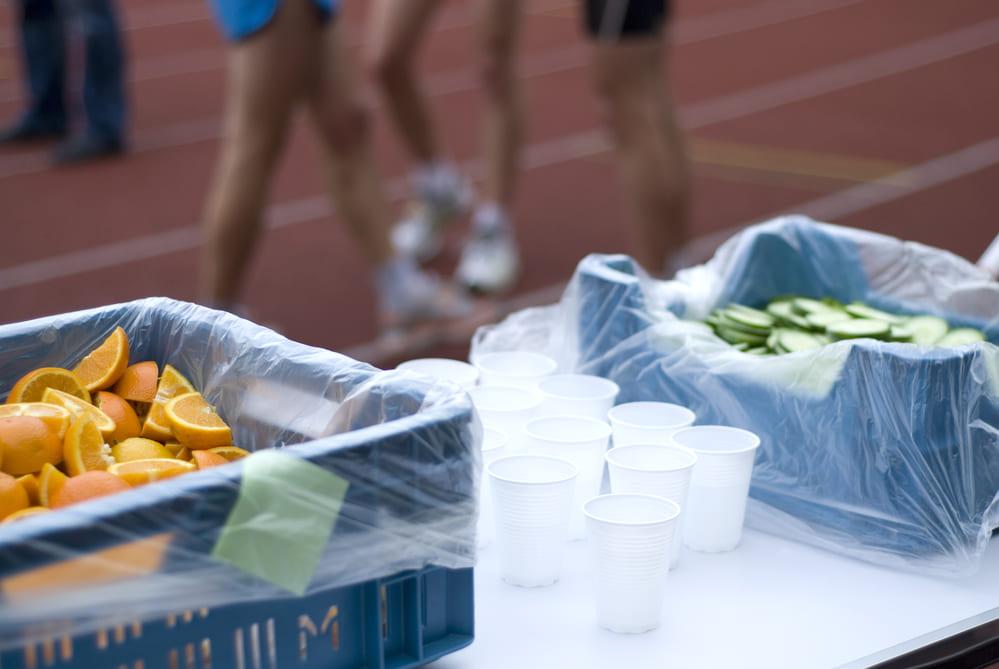
The first step to understanding the nutritional requirements of an individual athlete’s needs is the calculation of total energy expenditure (TEE). The calculation includes calories burned through sport, resting metabolic rate, and sleeping hours.
Given below are the macronutrients in order from most to least calories on one gram:
- Protein: 4kcal/g
- Carbohydrates: 4kcal/g
- Fats: 9kcal/g
It is essential to know when you need food and drink during a race to make the right choices. You may not realize it, but your body needs nutrients from outside sources to function correctly. These nutrients are taken inside the body by absorbing them into the bloodstream while digesting them, converting them into energy sources to provide fuel for your muscles and other functions.
In-race nutrition is a crucial aspect of successful racing. It helps reduce fatigue and gives your body the nutrients it needs for endurance.
Half Marathon Training Nutrition
If you’re training for a half marathon, you need to fuel your body. It’s essential to be well-prepared to stay on track and finish at the best time possible.
The most common question people have about running is whether or not they need to fuel during a half marathon. The answer is yes; you do need to fuel during a half marathon. You should perform better during your run if you eat the right amount of meal and drink enough water beforehand.
It’s essential that runners consistently drink water throughout the day when they are training for long distances such as marathons or half marathons; this will help keep them hydrated and perform at their peak level for the entire race.
Running a half marathon is one of the most challenging endurance sports. To show up for the race and reach your goal, training must be done with proper nutrition.
Approximately a half marathoner will need to consume about three meals and two snacks during the race. It is wise to include strategies like consuming caffeine or protein drinks to help you power through those tough times.
You need to fuel during a half marathon because you get tired, and your muscles need the energy to function correctly. You also have to hydrate yourself.
Have you ever wondered what I need to eat during a half marathon? Of course, there are some specific nutrition guidelines that you should follow for a healthy and practical training session.
You must know what food items are suitable for running. You should also know how much of these items should be eaten before the event begins.
Other Factors That Affect Fueling And Performance
When running, it is essential to ensure that you are fueling your body correctly and not taxing it too much by carrying too much weight on your back or wearing too many clothes.
The following factors are among the most important when running a half marathon:
- Running style (type of running).
- Weight carried on back (specifically: how heavy is your backpack).
- Clothing worn during the run.
- The weather or temperature during the run – The wind speed during the run.
Many factors affect fueling and performance.
Some of the factors include:
- Physical limitations – Mental state during training.
- Amount of sleep one gets per night.
- Fitness level.
Fueling during a half marathon can vary depending on individual and race needs. But other factors affect fueling, including your weight, height, gender, age, and training habits.
Fueling is a critical factor in performance for endurance athletes. But what does the research say? A study in the Journal of Applied Physiology found that certain conditions such as low blood sugar can decrease performance by 3%.
Some experts argue that fueling during a half marathon is unnecessary because you get enough energy from the run itself. Other experts say that you need to fuel because it helps with performance and recovery.
Conclusion
The benefits of fueling your body during a half marathon race are not only physical. It can also help your mental health and relieve some of your pressure before and during the race.
While no evidence suggests what works best for a particular person, there is no harm in trying various options to see what works best for you. That’s why we suggest you should go to the best coach or trainer. On the other hand, if you want the best coaching services, leave your comment. We will definitely approach you and guide you in the best way.
Filling up on carbs and sugar can help stabilize blood sugar levels, which can improve moods in athletes and general fatigue.
Running is a great way to get your body moving and burning calories. However, when you are running for more than an hour, it’s important to fuel before and during the race to prevent problems such as cramps.
It is recommended that runners refuel every two hours, but experts say that you don’t need to fuel during the run if you feel fine. It’s also essential not to over-fuel before the race as it can slow down your pace.
When should I fuel during a half marathon?
There is no hard and fast rule on when you should start feeling for a half marathon. It all comes down to what works best for you because everyone has their metabolism.
You should not fuel in the first hour of the race but instead, wait until the second hour. This will help maintain your body’s glycogen levels so that you can push harder during the third and fourth hours.
Can you run a half marathon without refueling?
You can, but it’s not the best option. Most people need to refuel every hour to maintain an even pace for the race. You can also use energy gels and drinks during the race or power bars and drinks when you’re refueling.
What is a good half marathon time?
A good time to finish a race is not just about how fast you can go; it’s also about whether or not you are going at an even pace throughout the entire distance.

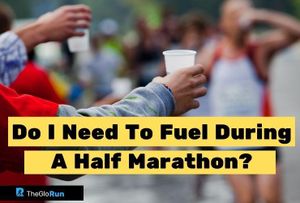

Join the conversation